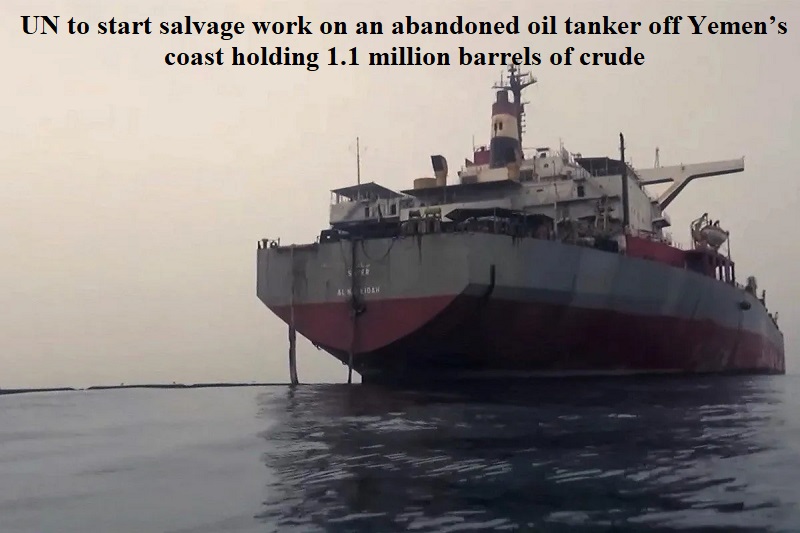
The United Nations announced its readiness to initiate salvage operations on an abandoned oil tanker near Yemen’s coast in the rebel-held port of Hodeida. The vessel currently holds 1.1 million barrels of crude oil and is speculated to be in a precarious state, posing a significant risk of explosion or fire that could cause severe damage to the local marine environment.
Since the outbreak of the civil war in Yemen in 2015, the tanker has not undergone any maintenance. To address this urgent situation, the UN has reportedly procured a super-tanker to facilitate the removal of oil from the stranded vessel, defusing what has been described as a ticking time bomb.
UN sources indicate that a company called SMIT Salvage will be responsible for completely extracting the oil from the stranded tanker. The process, estimated to cost $148 million, is expected to commence within the next 10 days to two weeks. The oil will be transferred to the UN-owned tanker Nautica, following which the empty stranded ship will be towed to a safe location.
David Gressly, the UN coordinator for Yemen, expressed satisfaction with the start of salvage operations, stating, “We’re very happy to be on site where we can start the work.”
Preparatory work for the salvage process is set to begin on Wednesday, with the assistance of an SMIT support vessel named the NDeavour, which arrived at the site on Tuesday. Achim Steiner, the head of the UN Development Programme overseeing the salvage operation, emphasized the significance of this milestone, stating, “With the arrival of the Ndeavour next to the FSO in the Red Sea, we truly have reached a critical milestone.”
Steiner further explained that if the operation proceeds as planned, the critical phase of the ship-to-ship transfer could be completed sometime in late June or early July.
The stranded oil tanker poses a pressing threat as any rupture prior to the complete removal of the stored crude could result in a massive spill, triggering an environmental crisis in the region. Oil spills have the potential to cause substantial harm to marine ecosystems by coating the water’s surface, affecting marine plants, animals, and birds. The oil can suffocate fish and other aquatic organisms by obstructing their gills, impede birds’ ability to fly by weighing down their feathers, and disrupt the delicate balance of marine food chains.

Post Your Comments